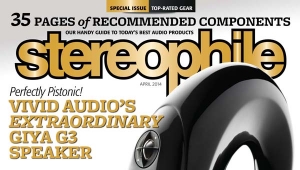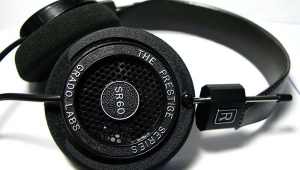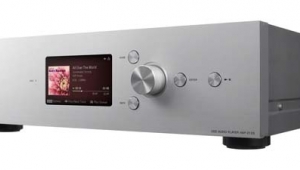| Columns Retired Columns & Blogs |
Ah, the slippery slope of linguistics!
Guitars produce music," speakers reproduce a given signal.
A guitar can sound any way it likes.
Speakers are supposed to sound like the ""instrument"" that produced the sounds in the first place.
You're pretty new to all this marketing bullshit"," but an easy rule: Turn your bullshit filter to ""red hot"" when any Hi Fi manufacturers say ""it enhances the music..."" about about their gear.
It's hard enough for speakers to accurately reproduce the actual signal properly; it's folly to make any broad claim that any given device in the sound reproduction chain ""enhances"" the music.
Hope that helps.
Now", if you'll pardon me, I have to head over to some photography forums to read about a new camera that enhaces the look of what you aimit at. I wanna see if they mean in the real world, or on the image viewer. Now THAT could be revolutionary






































